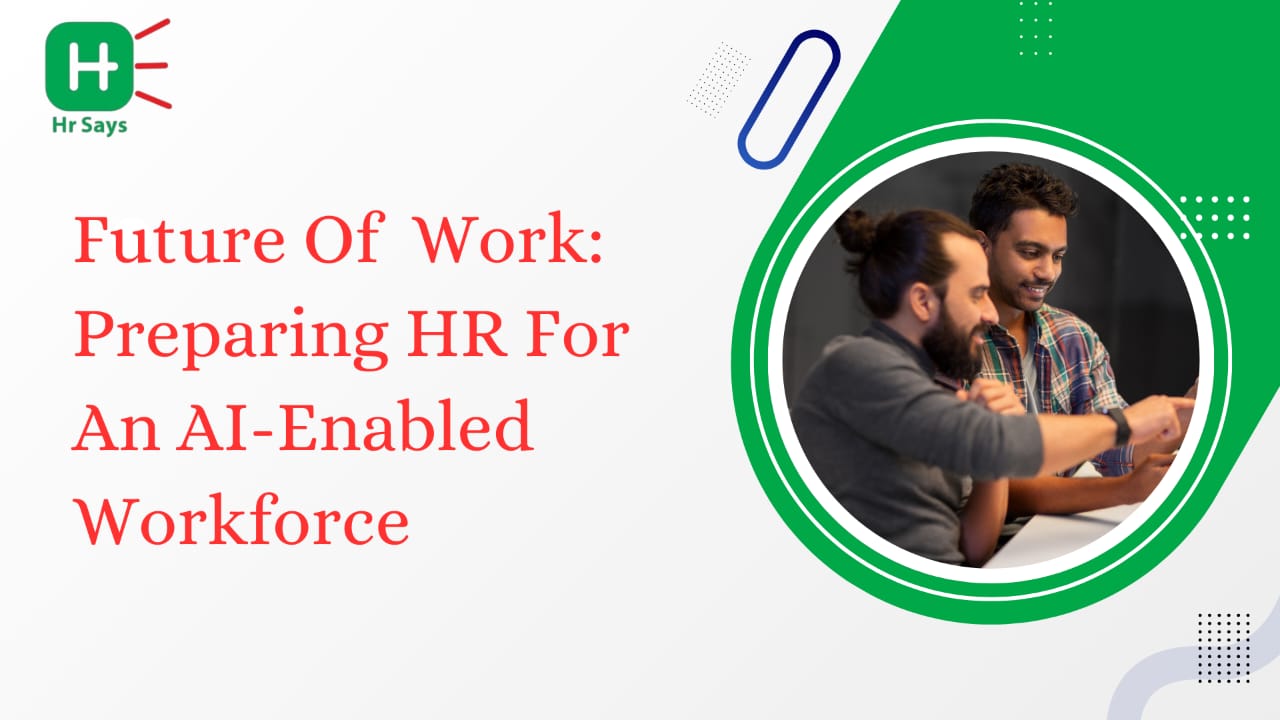What can HR professionals do to change the situation when the perception of work changes? Innovative Artificial Intelligence is not perceived as a far-off arena. It is transforming working processes, re-capturing skills, and redefining the role of HR in the contemporary job market.
Shaping The New Workplace
Physical boundaries and routine no longer define the workplace. To achieve this, with the introduction of AI, monotonous processes are made automatic, and decisions made are data-informed. HR leaders ought to ensure that they are efficient and humane. The emphasis is turned on flexibility, lifelong learning, and training of workers on dual concept jobs.
Key Challenges For HR Professionals
As AI becomes a core part of the workforce, HR is confronted with both opportunities and risks. The challenges must be acknowledged before strategies are built.
● Fear of job displacement among employees
● The need for reskilling and upskilling programs
● Ethical concerns in AI-driven recruitment and performance monitoring
● Balancing human touch with automation in employee engagement
These hurdles require HR to be proactive, not reactive.
Building A Future-Ready Workforce
Preparing an AI-enabled workforce is not only about technology adoption. It is about mindset. HR professionals must step into roles that demand foresight, empathy, and strategy.
Reskilling And Upskilling
Employees cannot be left behind in the digital shift. Reskilling ensures job relevance, while upskilling builds future capabilities. Structured programs, micro-learning platforms, and mentorship can help bridge the gap.
Redefining Roles
Traditional job descriptions are fading. Roles are being redesigned to integrate both AI tools and human creativity. HR must ensure that these evolving roles stay meaningful and fair.
Human-AI Collaboration
It is not a choice between humans and AI. It is about how they work together. By aligning tools with human strengths, HR can foster collaboration where technology supports, not replaces, people.
The Strategic Role Of HR In AI Adoption
HR is no longer just about policies. It is about guiding organizations through transformation. A future-ready HR strategy will include:
● Transparent communication about AI’s role in the company
● Clear policies on data usage and privacy
● Employee wellness programs that acknowledge digital stress
● A culture that values continuous innovation
These strategies ensure trust and acceptance among employees.
Conclusion
The future of work is here, and HR is at its core. AI will not diminish human value; it will reshape how that value is expressed. Preparing an AI-enabled workforce requires balance, strategy, and empathy. HR’s role is to keep work human while embracing what technology offers.

 The blog explores how HR professionals can prepare for an AI-enabled workforce. It highlights challenges, reskilling, role redefinition, and strategic approaches to ensure a balanced and future-ready workplace where technology and people thrive together.
The blog explores how HR professionals can prepare for an AI-enabled workforce. It highlights challenges, reskilling, role redefinition, and strategic approaches to ensure a balanced and future-ready workplace where technology and people thrive together.








.jpeg)
.jpeg)

.jpeg)





.jpeg)



.jpeg)

.jpeg)



